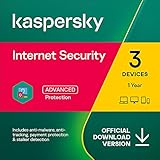
The scan starts together with the vulnerability scan and cannot be launched independently. Background scan – scans system memory, disk boot sectors, and startup objects.Vulnerability scan – scans the applications for vulnerabilities.Removable drives scan – scans drives such as hard drives, USB sticks, and similar.Selective scan – the user can choose particular folders or files to be scanned.If it finds any threats, the user gets a suggestion to do a full scan.


Connections with Russia's secret services.Unremarkable features in higher-priced plans.So is Kaspersky safe to use? Is it worth overlooking the scandals – especially when there are much more trustworthy antivirus providers, such as TotalAV or Bitdefender, available?

With that in mind, many users might have a serious problem using any products with such a connection – let alone a personal cybersecurity product. Plus, the domain of the Russian Ministry of Defense is hosted in Kaspersky's infrastructure, and Eugene Kaspersky, the owner of the company, has recently refused to condemn the Russian army's unlawful military actions in Ukraine. The Russian-owned company has been reported to be in communication with Russia’s Federal Security Service (FSB) and is responsible for providing them with real-time intelligence and identifying data of customers’ computers.

However, the reputation and security ties of the company are much more important than bells and whistles of an antivirus app. It might be quite user-friendly, and it might be quite popular. Kaspersky antivirus has enjoyed two decades of robust competition in the cybersecurity space.


 0 kommentar(er)
0 kommentar(er)
